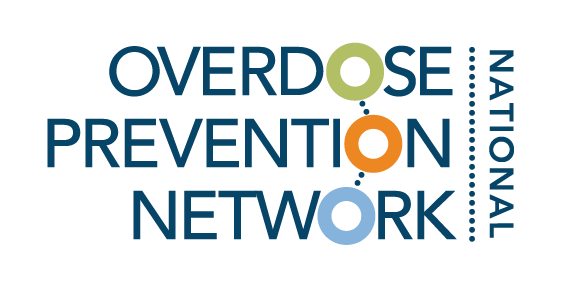
Resource Library
Toolkits, guides, and other resources vetted by experts in overdose prevention.
Filter by category and tags, or search by keyword (ex. COVID-19, harm reduction).
ADAPT: Cultivating Prevention Videos
A Division for Advancing Prevention and Treatment (ADAPT) supports the National High Intensity Drug Trafficking Area (HIDTA) Program by operationalizing the National HIDTA Prevention Strategy. ADAPT and HIDTA has created curriculum for implementing and evaluating substance use prevention practices within communities and has created videos to assist communities with keeping up to date with advances in prevention science. Their video library has s variety of trainings and technical webinars to cultivate, nurture, and support implementation of their prevention programming and curriculum.
ADAPT: Prevention Intervention Resource Center
The National High Intensity Drug Trafficking Area (HIDTA) Program has developed the Prevention Intervention Resource Center (PIRC). PIRC serves as a repository for publicly available resources for HIDTA communities to advance their evidence-based prevention programming. They have free curriculum available that includes: Sharing Substance-Related Information with Youth 11-18: Integrating the Best Available Evidence to Prevent Unintended Harm, Developing a Communications Plan, Developing Messaging Messaging through Mass Media, and so much more.
Training and Educating Public Safety to Prevent Overdose Among Black, Indigenous, and People of Color Communities
To better understand the training and education needs of public safety personnel related to preventing overdose in BIPOC communities, and to inform the development of future trainings, the National Council, with the support of the CDC, conducted an environmental scan that included a literature review and a series of key informant interviews and roundtables. The key findings from these activities are explained in this guide.
Overdose Prevention and Response in Community Corrections: An Environmental Scan
The National Council for Mental Wellbeing, with support from the Centers for Disease Control and Prevention, conducted an environmental scan to determine how overdose prevention and response efforts are currently implemented in community corrections. This effort included a literature review, 19 key informant interviews and a roundtable discussion with a diverse group of individuals with experience in community corrections, overdose prevention or harm reduction.
Evidence-Based Strategies for Preventing Opioid Overdose: What’s Working in the United States
This document is to assist community leaders, local and regional organizers, non-profit groups, law enforcement, public health, and members of the public in understanding and navigating effective strategies to prevent opioid overdose in their communities.
COPN Q & A on the Opioid Settlements in California
The Q&A below is based on presentations during the Fall 2022 COPN Convening with Christine Minhee, J.D., Founder of OpioidSettlementTracker.com and Louise Renne, LL.B., from Renne Public Law Group. You can access the full recording, slides, and resources here.
NOPN Q & A on the National Opioid Settlements
The Q&A below is based on a presentation from September 7, 2022 by Christine Minhee, J.D., Founder of OpioidSettlementTracker.com. You can access the full recording, slides, and resources here.
DHCS California's Opioid Settlements Info
This page provides information for California and the cities, counties, and other eligible subdivisions (“Participating Subdivisions") regarding the California Opioid Settlements.
Expanding Access To Medications For Opioid Use Disorder Treatment For Justice-Involved Populations Under Community Supervision: Best Practices From Four States
In July 2021, four states discovered a variety of policy and programmatic approaches to improve the medications for opioid use disorder (MOUD) landscape. The four states were able to pilot interagency collaborations, launch training and education curricula and explore innovative solutions around screening, treatments and case management.
National Opioids Settlements - Information for California Cities and Counties
This page provides information for California cities and counties regarding the National Opioids Settlements, including the proposed multistate settlements with pharmaceutical distributors McKesson, Cardinal Health and AmerisourceBergen (the Distributors), and manufacturer Janssen Pharmaceuticals, Inc. and its parent company Johnson & Johnson (collectively J&J), that were announced by Attorney General Bonta on July 21, 2021.
The Network for Public Health Law
The Network for Public Health Law provides visionary leadership in the use of law to protect, promote and improve health and health equity. We provide non-partisan legal technical assistance and resources, collaborating with a broad set of partners across sectors to expand and enhance the use of practical legal and policy solutions.
Contingency Management: A Highly Effective Treatment For Substance Use Disorders And The Legal Barriers That Stand In Its Way
This fact sheet makes the case for contingency management as a behavioral treatment option to addressing SUD. It explains some of the legal barriers to implementing contingency management on a wide scale, and why it is important to embrace methods other than medicine in our efforts.
Colorado's Opioid Settlement Funds Framework
This website provides detailed information regarding the current status of the Colorado opioid settlement funds, including the participating partners and current funding allocations.
Opioid Settlement Tracker
This website provides detailed information regarding the current status of the various opioid settlement funds by state, as well as other resources for how to look at your local opioid settlement status.
Tribal Opioid Settlement Webpage
Nationwide settlements have been reached to resolve all opioids litigation brought by states and local political subdivisions against the three largest pharmaceutical distributors. These settlements will provide substantial funds to states and subdivisions for abatement of the opioid epidemic across the country, and will impose transformative changes in the way the settling defendants conduct their business. This web page outlines the various opioid settlements for the tribal communities in the U.S., and offers legal documents outlining the risks and opportunities that these funds present.
Principles for the use of Funds from the Opioid Litigation
Developed by a coalition of organizations across the spectrum of the substance use field including physicians, addiction medicine specialists, recovery, treatment, and harm reduction, this webpage offers planning and process level guidance for state and local policymakers to use when planning for opioid settlement funds.
National Opioid Settlement Webpage
Nationwide settlements have been reached to resolve all opioids litigation brought by states and local political subdivisions against the three largest pharmaceutical distributors. These settlements will provide substantial funds to states and subdivisions for abatement of the opioid epidemic across the country, and will impose transformative changes in the way the settling defendants conduct their business. This web page outlines the various opioid settlements by state, and offers legal documents outlining the risks and opportunities that these funds present.
Strategies for Effectively Allocating Opioid Settlement Funds
Opioid settlements with pharmaceutical companies have already occurred, and there are more to come. Settlement funds could save lives and mitigate lifelong harms from opioid misuse if they are allocated to the most effective interventions. This webpage offers effective strategies for ensuring states get it right in terms of the distribution and effective use of these funds.
Isn't Two Enough?
Racial disparities in arrest rates for drugs are a well-documented (and lived) reality. For decades, drug policy has contributed to skyrocketing incarceration rates among minority populations. This video looks at the reasons behind these disparities, and what must be done to achieve improvements in health and racial equity.
Jay Z "The War on Drugs is an Epic Fail"
This video, narrated by Jay-Z, looks at the disparities in incarceration rates and health equity between different communities affected by the drug epidemic.















